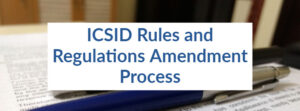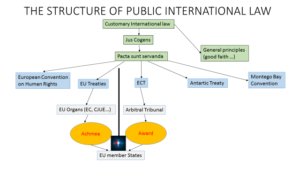Despite the common use of bifurcation in arbitration proceedings, there are many arguments against the bifurcation of most arbitral proceedings. Bifurcation refers to the separation of issues, typically dividing the proceedings into jurisdictional or procedural phases and the merits phase, or merits and quantum phases, allowing the arbitral tribunal to address and decide on specific […]
Arbitration
The Costs of Arbitration
One of the most common questions claimants have prior to starting arbitration proceedings are the costs of arbitration, whether they can be estimated in advance, and how they can be reduced. The costs of arbitration, in addition to an arbitration’s duration, are an important if not determinative factor in a claimant’s decision whether to start […]
Insolvency and Arbitration: What Issues Arise?
The economic disruption caused by the COVID-19 pandemic is expected to lead many corporations to insolvency, as well as trigger an increase in the number of commercial disputes. Consequently, it is likely businesses will have to face more arbitrations with insolvent entities, or arbitrations brought by bankruptcy trustees, when the right to maintain and dispose […]
How to File an ICSID Request for Arbitration
The filing of a Request for Arbitration before the World Bank’s International Centre for Settlement of Investment Dispute (the “Centre” or the “ICSID”) is a crucial and relatively straightforward step. In 2019, the ICSID Secretary-General received 39 requests for arbitration.[1] Almost all arbitration rules, including the ICSID Arbitral Rules,[2] provide that a party wishing to […]
Equal Treatment of the Parties in International Arbitration
Procedural protections consist of fundamental principles, which include the right to equal treatment and the right to be heard. Procedural protections are also provided through deference to party autonomy and the arbitrator’s procedural discretion.[1] The UNCITRAL Model Law, national arbitration legislation, judicial decisions and institutional rules provide for equality of treatment in various ways. Article […]
Third-Party Funding under ICSID Amendments: Balance Between States’ and Investors’ Interests
Over the past decade, the use of Investor-State Dispute Settlement (“ISDS”) mechanisms to challenge public policies has been a topic of attention and pressure from Non-Governmental Organizations and States to reform ISDS has increased.[1] This has led to proposals for amendment of the ICSID Rules. Working Paper #3, containing the latest proposals, may be found […]
Arbitral Tribunal Finds that Achmea and the January 2019 Declarations Are Irrelevant to Consent to Arbitration under the ECT
On 7 May 2019, the arbitral tribunal in Eskosol S.P.A in Liquidazione v Italian Republic [1] took a position on various issues concerning ECT arbitration following the judgment of the CJEU in Slovak Republic v. Achmea (“Achmea“). The decision addressed a request filed on 4 February 2019 by the Italian Republic for an award declaring […]
Çfarë Është Arbitrazhi Nderkombëtar?
Arbitrazhi ndërkombëtar është i ngjashëm me një proçedurë gjyqësore kombëtare. Por, në vend të një proçedure para një gjyqëtari, arbitrazhi kryhet para personave të zgjedhur të quajtur arbitra. Është një mënyrë neutrale, private dhe konsensuale për të zgjidhur konfliktet. Për më tepër, vendimi që jepet është i detyrueshëm dhe duhet te respektohet nga të gjitha […]
OHADAC: Arbitration and Mediation in the Caribbean Region
The OHADAC project is a project of legal integration in the Caribbean region, whose philosophy is similar to the OHADA’s in West Africa. The objective of the project is to advance legal and judicial integration of the Caribbean in order to ensure that a harmonized legal framework applies for the activities of Caribbean businesses. It […]









